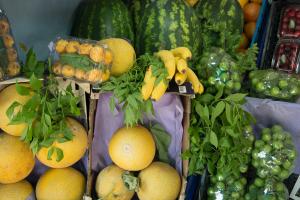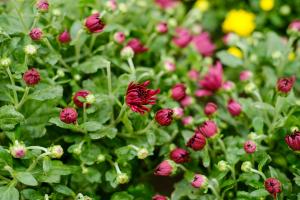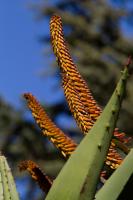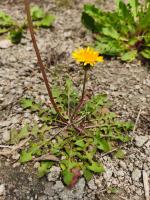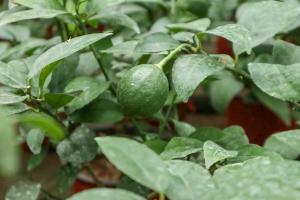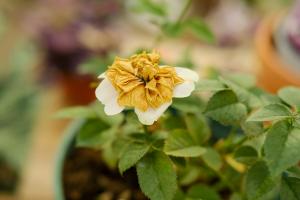What does the grafted meat look like
Don't we all believe that more meat can be grafted? The demon will show you some grafting pictures first. You can see that the demon must not have lied
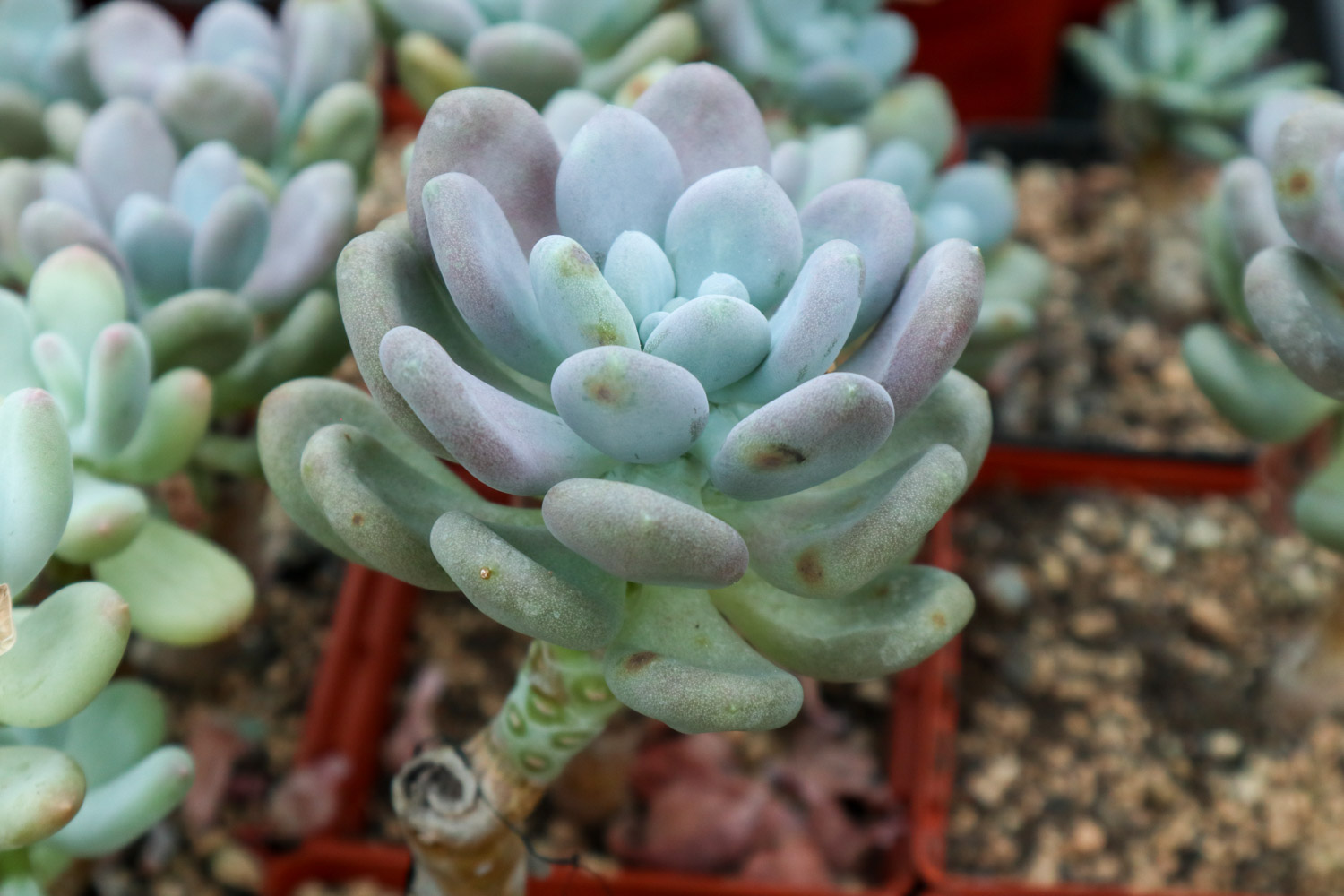

With so much meat grafted, five varieties emerge from one pot
How to graft meat? Quickly follow the demon to have a look
1. First prepare the tools needed for grafting. Any sharp knife or blade can be used, and then prepare plastic wrap for sealing
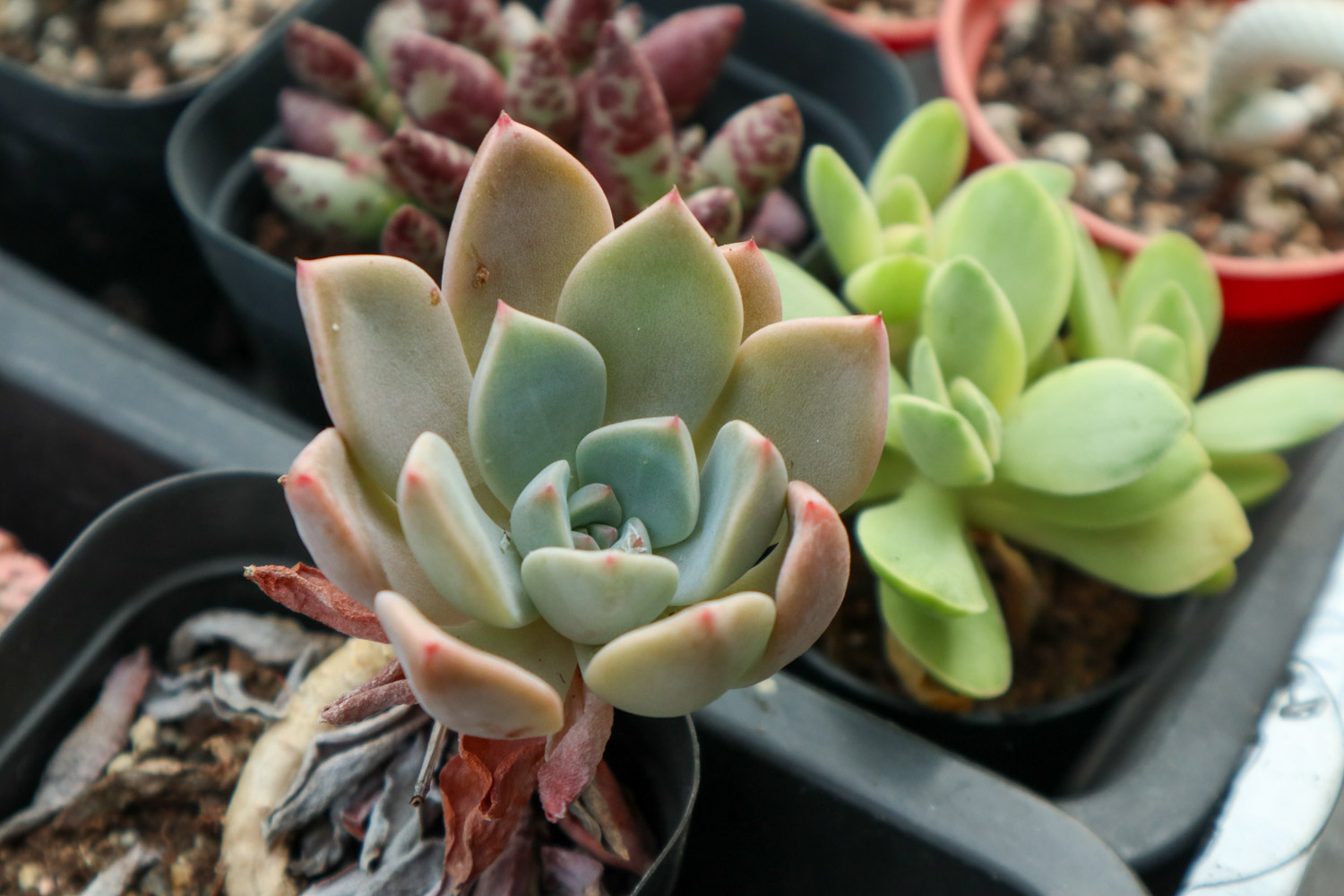
2. Rootstocks need to be selected for grafting. Rootstock requires strong stems, healthy plants and no diseases and pests. (TIA is used today. You can also choose other varieties)

3. Cut off one head of TIA with a blade, pay attention to the flat cutting surface, and then put it in a cool and ventilated place to allow the wound to dry
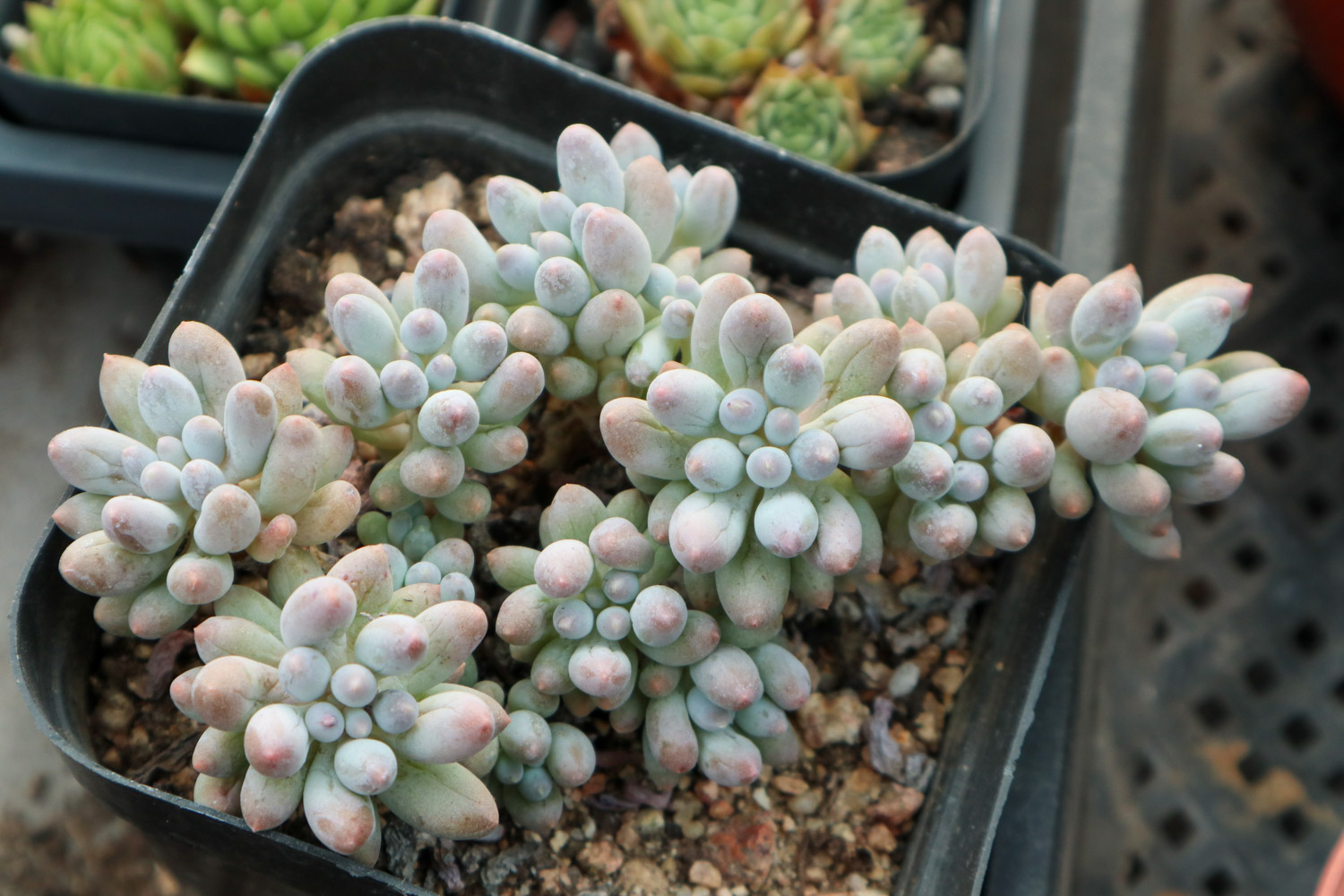
4. Then prepare the needed scions. The scion cannot be selected at will. It is better to belong to the same family as the fleshy rootstock. For example, if the rootstock is Rhodiola, the scion should also choose Rhodiola. Behead the meat with a knife, then dry the wound and set it aside

5. Fleshy butt joint
The demon first introduces the top connection method. First cut the lower end of the scion into an inclined plane, and then cut a small cut vertically with a knife


Insert the lower end of the scion into the rootstock, and pay attention to the tight fit between the rootstock and scion, so as to better grow together

Finally, tie up the interface with fresh-keeping film and put it in a cool and ventilated place to ease for a while. Basically, it will survive soon

6. Fleshy side connection
If you are worried that the grafting above will not survive, you can also try side grafting. The side connected rootstock does not need to be beheaded, but can be cut obliquely on the branch with a knife and cut the wound

Then insert the pruned scion and wrap it with plastic wrap! After grafting, it is basically like the following figure

Raised like this after grafting, the survival rate is 100%
1. The grafting temperature was above 15 ℃
If you want to try grafting, you'd better ensure that the indoor temperature is above 15 ℃. If the temperature is too low, it will affect the speed of wound healing

2. Place in a cool and ventilated place after grafting
For the newly grafted meat, put it in a cool and ventilated place to ease for about 1 week, so that the wound can heal faster, and then move it to the sun for normal maintenance


 how many times do yo...
how many times do yo... how many planted tre...
how many planted tre... how many pine trees ...
how many pine trees ... how many pecan trees...
how many pecan trees... how many plants comp...
how many plants comp... how many plants can ...
how many plants can ... how many plants and ...
how many plants and ... how many pepper plan...
how many pepper plan...